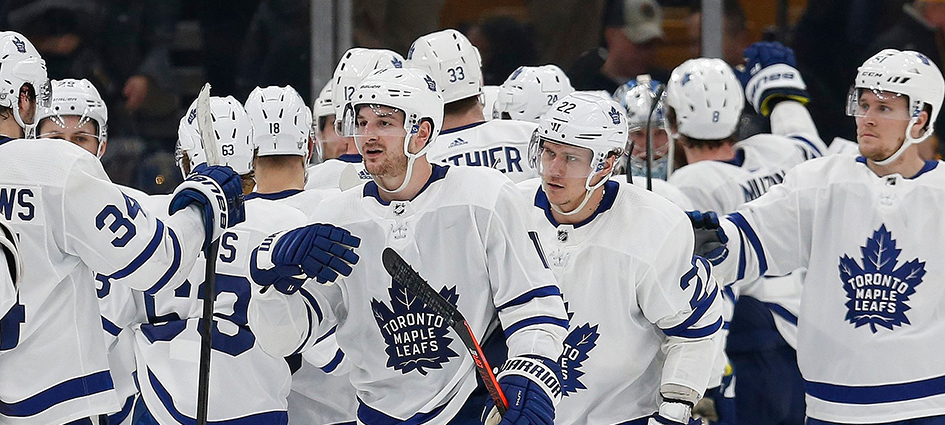
Toronto Maple Leafs searching for 'hockey IQ' over brute force
- The Boot Room
- 19 November 2019
Brandon Pridham of the Toronto Maple Leafs tells candidates on the 2019/20 UEFA Pro Licence about recruiting ice hockey talent based on ‘hockey sense’ and ‘hockey IQ’.
Twenty years ago, when Brandon Pridham, assistant general manager of the Toronto Maple Leafs, started working in ice hockey, size was pretty much all that mattered.
When it came to identifying talent, physicality won over intelligence.
“It was all about the old toughness of our game. We had lots of fighting, lots of physicality – ‘compete level’ was more to do with physical intimidation,” explains Pridham, who joined the team following a 15-year career with the NHL.
“That’s all changing - now we look at how we want to play hockey and the way the game is. We’re more mental toughness over the physical toughness.”
Pridham, who was sharing his experience in talent recruitment with candidates on the 2019/20 UEFA Pro Licence course, explains that in his role with the Maple Leafs, ‘hockey IQ’ is now favoured over brute force.
“I believe that ‘hockey sense’ and IQ is probably the biggest thing for us and that’s probably one of the things that we believe is more of an innate characteristic: your ability to process, your ability to see the play.
“We want players who are able to possess the puck, not turn it over, and set-up plays.
“We’re really trying to change the way we play and that’s our challenge with our scouts.”
Best practice footage and style of play content is shared with scouts to ensure they have clarity about the type of ‘hockey IQ’ the squad requires, explains Pridham.
“We show the scouts video, we go over examples of what we’re looking for and how we want to play and that’s really where we’re transitioning to from our perspective.
“There’s a style we’re seeking and it’s about mobility. We want defencemen that are quick and able to join the rush, able to push the pace of play because we want to play fast, we want to outskate our opponents, several of who are still of the mindset of the big body.
“Size is always important and if you can have both, then great - but we’re trying to take advantage of speed and skill and push that play.”

Footage is also provided for future players to describe and analyse. It’s another way of assessing ‘hockey IQ’, explains Pridham.
“We’ll now take a video of the player themselves or the video of our team and have them just look at it. We’ll ask ‘what do you see’ - there’s not really a right or wrong answer, but it just gives us an idea on how he could be taught or his vision of the game.”
The process aims to get to know the personality and character of prospective recruits, something which is supported through a series of interviews.
“We have Dr. Meg Popovic who works for us and she’s the background psychologist. During the season she’ll do a Skype interview or sit and talk to a player in person,” adds Pridham.
“She’ll sit down and do a face-to-face analysis as well. We’re really reliant on our scouts and Dr. Meg to give us this whole character background of the player.”
The FA Talent ID Conference is taking place on the 28th November at St. George’s Park. To learn more about this year’s theme, disruptive thinking in talent identification, follow @StGeorgesPark on Twitter and look for the hashtag #TalentID2019.
Brandon Pridham was speaking to candidates on the 2019/20 UEFA Pro Licence course. The purpose of the discussion was to share recruitment best practice between US and Canadian sports and football. Learn more about the UEFA Pro Licence course here.
Article image courtesy of Michael Dwyer/AP/Shutterstock.


